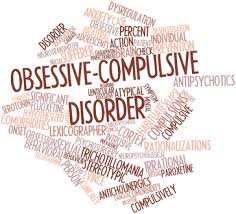From time to time we all have unwanted thoughts, but mostly we can push them aside and move on. However, for individuals with obsessive-compulsive disorder (OCD) unwanted negative thoughts can be incessant and start to take control of their lives.
OCD is a serious but treatable anxiety disorder that affects more than 500,000 individuals in Australia. Usually developing in late childhood or early teenage years, it can become a chronic condition without proper treatment. OCD has two types of symptoms: obsessions (irrational thoughts and fears) and compulsions (repetitive behaviours or rituals).
Obsessions intrude on everyday thoughts and may include inappropriate visual images. Compulsions occur as a response to the obsessions, as an attempt to reduce anxiety. The compulsions can take considerable time, impacting on normal day-to-day activities, e.g. checking the oven is turned off 25 times. Individuals suffering from OCD are usually aware of their behaviours and understand that they are excessive. This is turn can cause shame, therefore forcing individuals to keep their condition secret.
There are a variety of different symptoms in OCD, but often they follow certain common themes.
 Common obsessions include:
Common obsessions include:
• Fear of contamination due to germs or illness, which may lead to avoiding hand contact or toilets, and an excessive need to wash and clean
• Fear of hurting others, for example your own children, or in a car accident
• Preoccupation with having things in order, or following certain patterns
• Sexual or pornographic thoughts or images
• Worrying you have forgotten to lock doors or turn off appliances
• Preoccupation with religious or moral issues
 Common compulsions include:
Common compulsions include:
• Cleaning
• Checking
• Counting items or objects
• Hair pulling and hair loss
• Skin picking.
• Hoarding random objects
• Praying excessively
• Constant demands for reassurance from others
Some behaviours that are not listed here may still be OCD symptoms. OCD is characterised by the obsessive nature of the behaviour as much as the behaviour itself.
There are a number of theories about the causes of OCD, including Genetic, Biological, Environmental, Personality traits and distressing life events. People who suffer from OCD are also more likely to develop depression or other anxiety disorders, such as panic disorder or social anxiety. There is help available to set you on the path to recovery.
If you have any questions or would like to make an appointment, please contact us on 8448 1106.
